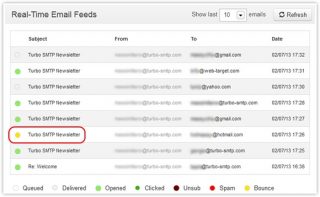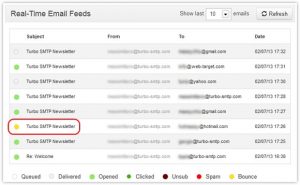

 Īcme’s system provides some authentication with a token in the Acme-Webhook-Token header. Therefore we don’t want a transaction around the whole view. Here, we’re using direct transaction control-the on process_webhook_payload-to ensure that if our business logic crashes, we’ve at least saved the AcmeWebhookMessage for debugging. Using ATOMIC_REQUESTS is normally a good idea, and a straightforward way of adding transactions to your Django application. But for webhooks, we verify requests with different authentication schemes, so we can disable blocks non-POST disables the ATOMIC_REQUESTS (transaction-per-request) for this view. Normally we wouldn’t want to accept a POST request without a CSRF token, as it could indicate a user being tricked into submitting a malicious form to our site from another. now (), payload = payload, ) process_webhook_payload ( payload ) return HttpResponse ( "Message received okay.", content_type = "text/plain" ) def process_webhook_payload ( payload ): # TODO: business logic disables Django’s default cross-site request forgery (CSRF) protection. ACME_WEBHOOK_TOKEN ): return HttpResponseForbidden ( "Incorrect token in Acme-Webhook-Token header.", content_type = "text/plain", ) AcmeWebhookMessage. get ( "Acme-Webhook-Token", "" ) if not compare_digest ( given_token, settings. TestImplementation(' datetime as dt import json from secrets import compare_digest from nf import settings from django.db.transaction import atomic, non_atomic_requests from django.http import HttpResponse, HttpResponseForbidden from import csrf_exempt from import require_POST from django.utils import timezone from import AcmeWebhookMessage def acme_webhook ( request ): given_token = request. Implementation 'org.projectlombok:lombok:1.18.22'ĪnnotationProcessor 'org.projectlombok:lombok:1.18.22'ĪnnotationProcessor ":spring-boot-configuration-processor" Implementation 'com.openhtmltopdf:openhtmltopdf-pdfbox:1.0.10' Implementation 'com.openhtmltopdf:openhtmltopdf-core:1.0.10' Implementation ':resteasy-jackson2-provider:5.0.2.Final' Implementation 'io.jsonwebtoken:jjwt:0.9.1' Implementation ':spring-boot-starter-data-mongodb' Implementation ':spring-boot-starter-freemarker' Implementation ':spring-boot-starter-web' Implementation ':spring-boot-starter-security' Implementation ':spring-boot-starter-tomcat' added for :jai-codec required by apache fop
Īcme’s system provides some authentication with a token in the Acme-Webhook-Token header. Therefore we don’t want a transaction around the whole view. Here, we’re using direct transaction control-the on process_webhook_payload-to ensure that if our business logic crashes, we’ve at least saved the AcmeWebhookMessage for debugging. Using ATOMIC_REQUESTS is normally a good idea, and a straightforward way of adding transactions to your Django application. But for webhooks, we verify requests with different authentication schemes, so we can disable blocks non-POST disables the ATOMIC_REQUESTS (transaction-per-request) for this view. Normally we wouldn’t want to accept a POST request without a CSRF token, as it could indicate a user being tricked into submitting a malicious form to our site from another. now (), payload = payload, ) process_webhook_payload ( payload ) return HttpResponse ( "Message received okay.", content_type = "text/plain" ) def process_webhook_payload ( payload ): # TODO: business logic disables Django’s default cross-site request forgery (CSRF) protection. ACME_WEBHOOK_TOKEN ): return HttpResponseForbidden ( "Incorrect token in Acme-Webhook-Token header.", content_type = "text/plain", ) AcmeWebhookMessage. get ( "Acme-Webhook-Token", "" ) if not compare_digest ( given_token, settings. TestImplementation(' datetime as dt import json from secrets import compare_digest from nf import settings from django.db.transaction import atomic, non_atomic_requests from django.http import HttpResponse, HttpResponseForbidden from import csrf_exempt from import require_POST from django.utils import timezone from import AcmeWebhookMessage def acme_webhook ( request ): given_token = request. Implementation 'org.projectlombok:lombok:1.18.22'ĪnnotationProcessor 'org.projectlombok:lombok:1.18.22'ĪnnotationProcessor ":spring-boot-configuration-processor" Implementation 'com.openhtmltopdf:openhtmltopdf-pdfbox:1.0.10' Implementation 'com.openhtmltopdf:openhtmltopdf-core:1.0.10' Implementation ':resteasy-jackson2-provider:5.0.2.Final' Implementation 'io.jsonwebtoken:jjwt:0.9.1' Implementation ':spring-boot-starter-data-mongodb' Implementation ':spring-boot-starter-freemarker' Implementation ':spring-boot-starter-web' Implementation ':spring-boot-starter-security' Implementation ':spring-boot-starter-tomcat' added for :jai-codec required by apache fop 
Id 'io.pendency-management' version '1.0.11.RELEASE' PS I hope I'm clear with my question, English is not my native language) If there could be any way to stop DBeaver from creating more than one session for just one connection, I will appreciate any help. My goal is to keep working with DBeaver since this tool has some amazing features, but without having to bother my DBA everytime I can't connect due to simultaneous sessions. I am sure I don't have any other session opened with any other tool. I already talked with DBA and he showed me that whenever I connect to my database DBeaver creates two sessions (two rows in table v$session) and when he tries to kill them, they hang out for a while until they finally go away and I can connect again. I'm not sure if this is a DBeaver issue or I am missing something in my Oracle connection configuration. Everytime my session goes idle and I need to recconect I'm getting this error. I can't seem to find the way to avoid ORA-2391 "exceeded simultaneous SESSIONS_PER_USER limit" when working with DBeaver 4.3.3.1.
ORA WEBOOK HOW TO
Wendy Asks: How to solve repetitive ORA-2391 error in DBeaver 4.3.3.1





 0 kommentar(er)
0 kommentar(er)
